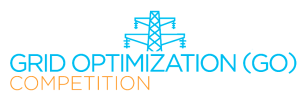A team of researchers led by Kibaek Kim, an assistant computational scientist in the Mathematics and Computer Science division at Argonne National Laboratory and a member of the MACSER team, has been awarded a support grant to participate in the new Grid Optimization (GO) Competition.
Other Argonne participants in the GO project include Michel Schanen, Adrian Maldonado, and Youngdae Kim, all of whom are members of the MACSER team. The project will be enabled by recently technologies that M2ACS/MACSER researchers played a critical role in inventing, supporting and shepherding, such as the StructJuMP modeling environment and the PIPS-NLP solver, all free software with major Argonne contributions.
The Argonne-led team will collaborate with United Technologies Research Center and the University of Wisconsin to develop new solutions for the nation’s power grid.
Argonne is one of 18 teams from national laboratories, industry, and academia selected to participate in Challenge 1. The aim of this year-long challenge is to develop optimization algorithms that enable electricity to be routed quickly, safely, and reliably. Of particular interest is improving the power grid’s security against contingency events, such as transmission line failure. The algorithms will be tested in multiple trials on complex, realistic power system models.
Announced by the U.S. Secretary of Energy in October 2018, the GO Competition is the first such competition funded by the Advanced Research Projects Agency-Energy (ARPA-E). The competition was created with support from Pacific Northwest National Laboratory.
Teams can download data sets provided by the GO Competition, which they can use to evaluate their algorithms in their own development and testing environments. Two trial rounds will be run, followed by a final event in November 2019 in which the teams will compete for the highest score.
“We are excited about this opportunity from ARPA-E to advance the state of the art on algorithms for optimal power flow,” said Kim. “The GO Competition will enable us to build on and extend our expertise in optimization methods for the design, planning, and operation of next-generation energy systems critical to our nation’s power grid”.
The teams selected for the ARPA-E support grants for Challenge 1 are listed in https://arpa-e.energy.gov/?q=news-item/modernizing-grid-go-competition. Additional challenges are planned beginning in 2019 in areas including storage, grid resilience, and cyber security.
For further information on the GO Competition, see the YouTube Video at https://www.youtube.com/watch?v=hZwX3P9vS8M and the ARPA-E announcements at and https://arpa-e.energy.gov/?q=arpa-e-programs/go-competition.


